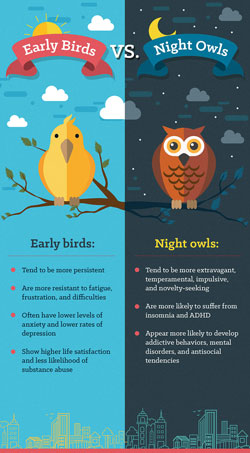Suicide. The word enough can send a shiver down your back. While it may seem like a far away term that you only see on Law and Order, it is a very real problem in our world. September is National Suicide Prevention Month, and the question stands: How can our generation stop this terrible self-murder?
Suicide is a tragic epidemic that takes over 39,000 people a year, according to Dr. John Draper, director of the National Suicide Prevention Lifeline. The Huffington Post reported that “there are more people dying each year in the U.S. by suicide than there are people dying in car accidents.” The world was stunned by the recent suicide of beloved actor Robin Williams, and the outpour of social media reactions caused people to really look into mental illness and the realities of it.
Draper shared that “A friend of mine told me that he loves working in suicide prevention because it reminds him of the reasons that life is worth living. And most of the time, those reasons are about having meaningful connections with others. There is something we can all do to promote that in our lives and in the lives of others around us”.
A shocking study done in Boston showed that more than 50 percent of college students have felt suicidal. This statistic brings this problem close to home. “Suicidal crises are a common occurrence on college campuses,” contended Chris Brownson, director of the University of Texas Counseling and Mental Health Center in Austin. A recent annual national survey conducted by the American College Health Association showed that 30 percent of college students reported feeling “so depressed that it was difficult to function” at some point of time during the past year. Despite these numbers, many students think depression and anxiety are issues not commonly faced on campuses. David Drum, a psychologist from the University of Texas, pointed out that “[Most people in university environments] only see the high-profiles examples, but they don’t see the everyday anguish students are going through”.
Tom McCarthy is a licensed professional counselor here on campus who has seen everything from homesickness to suicidal thoughts. As more information regarding mental illnesses is released, more students come to counseling and psych services. The counseling center has policies to help each individual in the way that is most beneficial for them.
McCarthy stated “Sometimes helping a student is putting them in the hospital, other times it involves pulling in other resources on campus and putting together a safety plan. When you’re down, who do you call? Who do you call if they’re not there?”
Depression is an epidemic that touches everyone somehow, whether it be a friend, family member, peer, or neighbor. Samantha Marella, a sophomore business marketing major, recalls a friend who was diagnosed with depression in her high school and attempted suicide.
“She was happy all the time, so no one expected it,” Marella explained. “The moral of the story is to always be nice and not to judge others, because you never know what they’re going through.”
Monmouth has a program called PWR: Promoting Wellness and Resiliency, which is funded by the Garrett Lee Smith Grant for Suicide Prevention. The program offers trainings and programs, and raises awareness of mental illness across campus. This is the school’s third year with the program and it’s been a success, showing students that help is out there, they just have to take it. Through this program and the outpour of new information regarding illnesses like bipolar disorder and depression, McCarthy has realized that “there is starting to be less of a stigma on mental illness. It’s allowing people to ask for help without having to worry if they will be judged or ostracized.”
The counseling center gathers about 800 referrals a year according to McCarthy and people seem “really comfortable” when coming. The closeness between the counseling office and other offices helps make students more relaxed about coming for help. A lot of times, a professor or coach reaches out to a student, showing how strong and personal the connections between students and staff are. Counselors are often at campus events, putting a face to an intimidating situation.
Dr. Lloyd Sederer, a Medical Directer at the New York State Office of Mental Health, addresses the scary situation many students face, when reaching out to a depressed friend.
“We shouldn’t be afraid to say ‘are you OK’ and to have a conversation,” explained Sederer. “We need to be able to have the courage to ask and then the courage to continue to ask the tough questions because that’s what counts.”
It isn’t easy to break down the emotional wall with a friend going through a tough time, but once the conversation starts, good things will come from it, whether it be a friend knowing they have someone to lean on, or them knowing they have a whole campus who is here to support them and stand by them.
McCarthy speaks out directly to these students going through hard times: “Understand that there is hope out there. There are a lot of people who care about you on this campus. Simply saying something to someone on this campus can get you to the right place for getting help”.
Sometimes, the fear of judgment is enough to prevent students from seeking help. People of all ages can be ignorant when it comes to topics like mental diseases and depression.
To these students, McCarthy laments, “Being a counselor and seeing someone who is clinically depressed, I could never understand how someone could think this person is choosing to feel this way. If I was a diabetic and was taking insulin for that, would you judge me? I take it to stay alive. It is the same way with someone who has depression. They didn’t choose this. Sometimes they have to take medication or go to counseling, but at the end of the day, I respect that. They’re doing their best to take care of themselves.[Mental illnesses] flare up just like arthritis does.”
IMAGE TAKEN from psychiatriststresssearchfund.co.uk.




